Why Obama allies are against Pacific trade deal
- Published
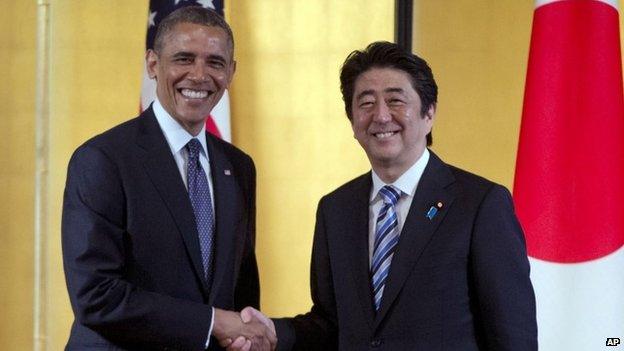
The US and Japan are the two largest economies involved in the negotiations
US congressional leaders have agreed a bill that would give President Barack Obama "fast-track authority" to approve a massive trade deal in the works known as the Trans Pacific Partnership. So why are Mr Obama's Democratic allies upset, and what does this mean for the US?

What is the Trans-Pacific Partnership (TPP)?
The TPP is a proposed free-trade deal between 12 Pacific Rim countries - the US, Japan, Brunei, Malaysia, Vietnam, Singapore, Australia, New Zealand, Canada, Mexico, Chile and Peru.
It is estimated to cover anywhere between one-third to 40% of world trade but is missing a key Pacific economy - China.
The TPP is seen as a way of counterbalancing China's economic influence in the region, but US officials say the country is welcome to join the agreement in the future.
Negotiations have been ongoing for more than five years, almost entirely in secret. What is known about its contents publicly has been limited to leaked information.
A final deal is said to be as close as a few months away.

What does the bill in Congress do?
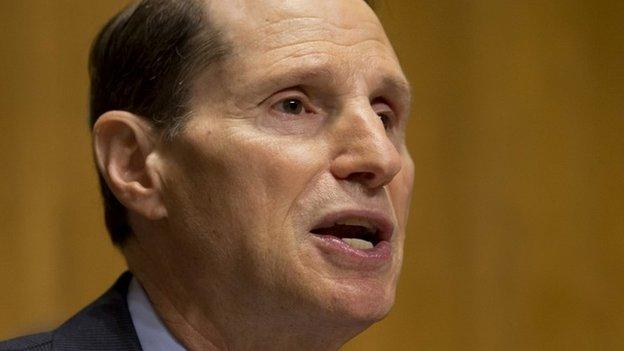
Democratic Senator Ron Wyden has criticised the lack of transparency in negotiations but negotiated the fast-track deal in Congress
The legislation is what's known as trade promotion authority - it allows the US Congress to approve a trade deal with a simple majority in both chambers.
This "up-or-down" vote prevents legislators from adding amendments to the deal.
Negotiations between Democrats and Republicans on the bill have led to two key additions - the creation of a programme to help workers who lose their jobs because of the deal and an option for legislators to remove the fast-track element if they believe Congress has not been properly consulted.
The bill also includes dozens of objectives for US negotiators reflective of the wide range of subjects covered in the trade deal - from agricultural exports to international data flows.
Representatives of Japan and other TPP countries have said such a fast-track deal on the part of the US is "extremely important" to wrapping up negotiations.

Why is this a political issue in the US?
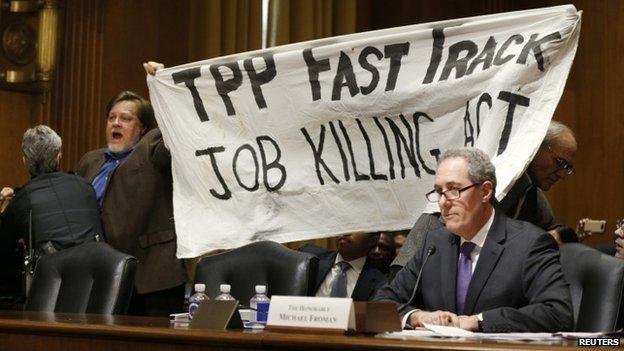
A protester unfurls a sign behind US Trade Representative Michael Froman at a hearing
Some Democrats and labour groups have criticised trade deals for primarily helping businesses and offering a strong incentive for US companies to move production and jobs overseas.
Opponents are particularly unwilling to go forward with such a deal following the North American Free Trade Agreement (Nafta), the US largest free trade deal, covering Canada and Mexico.
Then-President Bill Clinton pushed through Nafta under similar opposition from labour groups. They have been unhappy about Nafta's effect on US workers, and fear TPP would be worse.
This time the issue threatens to enter the nascent US 2015 presidential election campaign - some Democrats are now asking Hillary Clinton, who announced she was running last week, for her position on the fast-track bill.
And Senator Elizabeth Warren, whose supporters have urged to run for president, has been very vocal in her opposition to the trade deal and the lack of transparency around the negotiations.

Who supports and opposes the TPP?
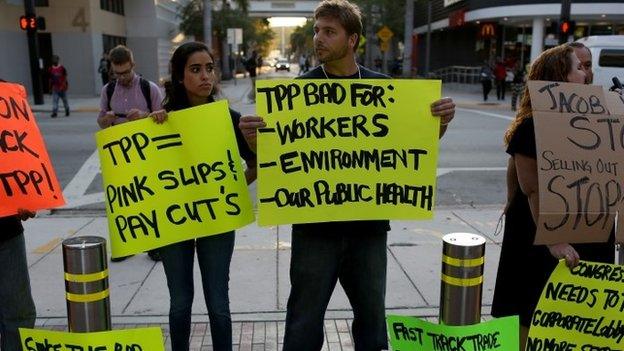
Protesters demonstrate in Miami last month
The TPP is supported by business-minded Democrats and Republicans as well as the largest business lobbying firm in the US - the US Chamber of Commerce.
Proponents say the deal will increase US exports and benefit the overall economy.
Mr Obama has portrayed the agreement as a boon for small businesses who face tariffs overseas, as well as for American competitiveness against China and India.
Some Democrats, union groups - especially the AFL-CIO - and environmental groups oppose the effort.
They argue the US will ultimately lose jobs to growing economies in Asia and South America. There are also concerns over intellectual property rights contained in the deal.
Others are dubious the deal will actual lower tariffs and barriers on US imports or improve labour conditions in other countries.
And the secrecy of the negotiations have riled more traditional free trade deal opponents as well as privacy and internet advocates.

Why does Mr Obama break with Democrats and his usual allies on this?

An aerial banner sponsor by Medicins Sans Frontiers against TPP's intellectual property elements
The TPP would be a massive achievement for the Obama administration and a significant step in the economic element of the Asia pivot.
Mr Obama has said the White House has closely consulted with Congress during the negotiations.
And he has told opponents from his own party voting against TPP is a vote for the status quo - which he says harms American workers.

What's next?
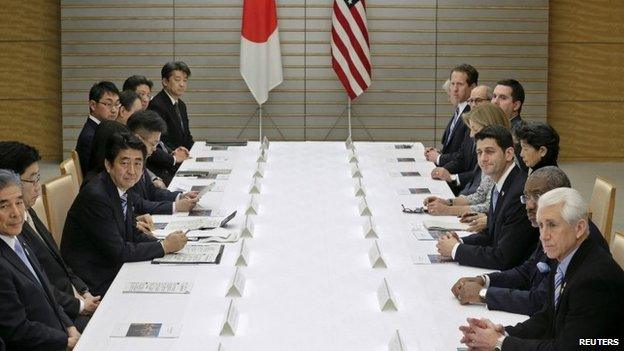
Representative Paul Ryan (centre on right side) led a congressional delegation to Japan to talk about TPP
Congress will likely vote on the fast-track bill in the next few weeks.
It faces a tough vote in the House of Representatives from liberal Democrats and conservatives who dislike giving Mr Obama more power.
If the bill is passed, and the trade deal is finalised, the president will be required to publish the deal 60 days ahead of when the US intends to sign it, giving Congress time to approve or disprove the measure.